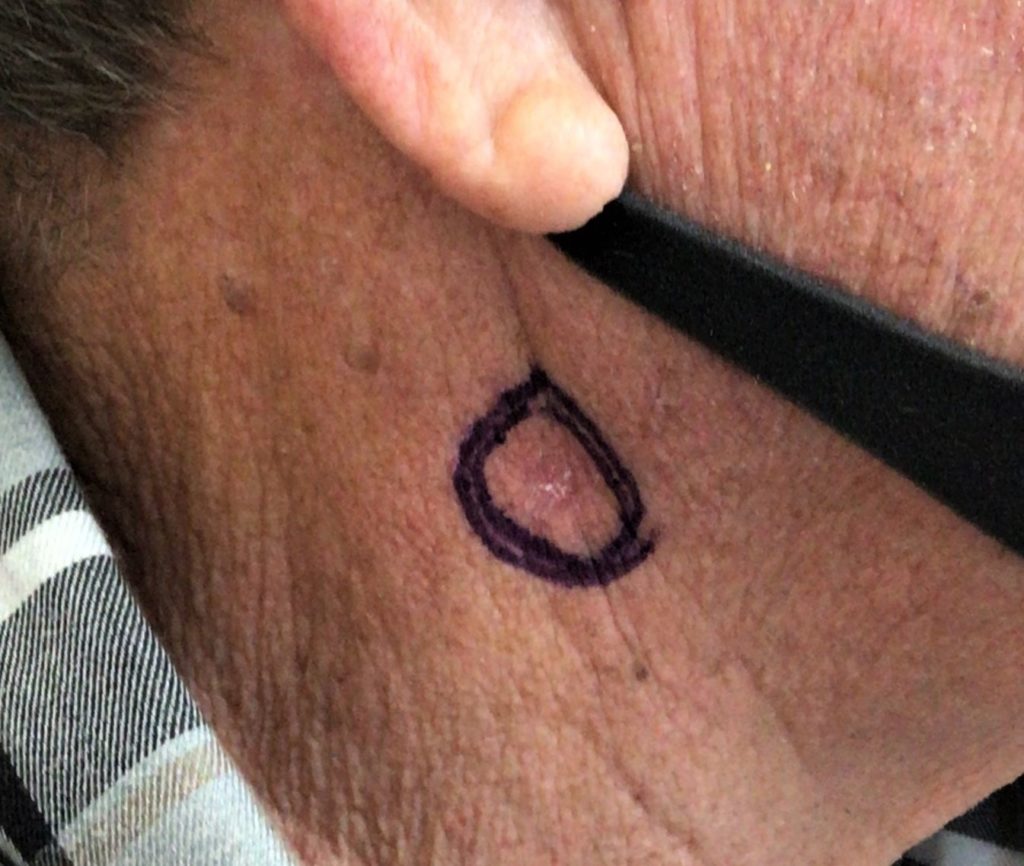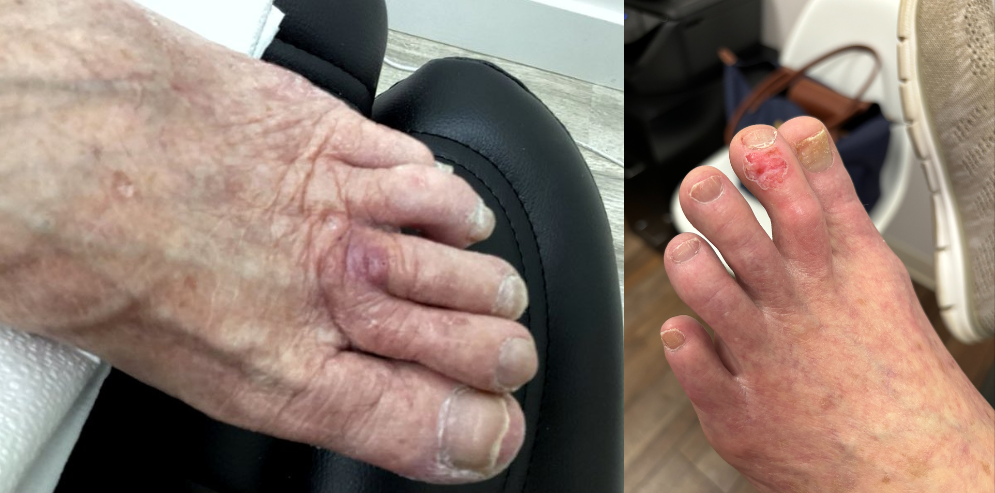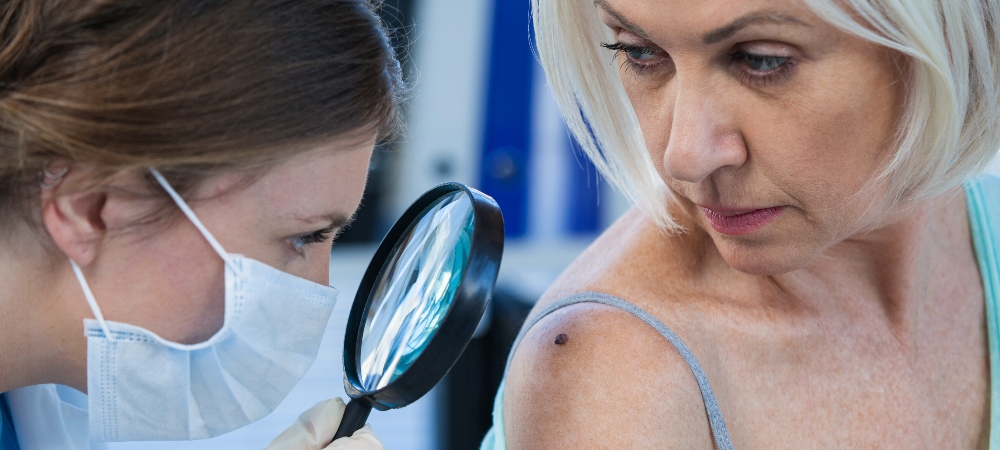
Skin cancer on the neck is one of the most common parts of the body to develop the disease. What does skin cancer look like on your neck? You may notice a wart-like cancer bump on the neck or a raised, crusty, or irregularly shaped sore that won’t heal. Discover the early signs of skin cancer on the neck with this overview.
What Does Skin Cancer Look Like on Your Neck?
There are three types of skin cancer on the neck:
- Basal cell skin cancer on the neck: As the most common form of skin cancer, basal cell skin cancer comes with a wide range of physical markers, though it often appears as a waxy, flesh-colored sore that may bleed or puss but refuse to heal.
- Squamous cell skin cancer on the neck: Squamous cell skin cancer is a common type of skin cancer, and often looks like a firm red bump or crusty patch of skin.
- Melanoma on the neck: The most intrusive form of skin cancer. It often begins as a mole and then evolves in color, size, and shape, growing with irregular borders.
With so many skin conditions to be aware of, it can sometimes be difficult to determine whether or not a change in appearance is actually skin cancer. For example, rashes are often a side effect of a new medication or environmental stimulant, making a skin cancer rash on the neck a rarer occurrence. Still, any significant development to your skin that does not heal itself within a reasonable amount of time should be examined by a dermatologist.
Early Signs of Skin Cancer on the Neck
Knowing the early signs of skin cancer helps you stay on top of your skin’s health, although looking for a cancerous growth on the back of your neck may be more challenging. Performing a self-examination on a regular basis is a good preventative measure, keeping you aware of any new bumps, sores, or discolorations. Skin cancer bumps, growths, and sores may start small and build over time. Scheduling an annual skin cancer screening will give you professional guidance for any troublesome developments.
Use the ABCDEs
While it’s important to keep up with routine skin cancer screenings, you should also know how to identify changes in your skin yourself. One of the easiest ways to do this is to learn the ABCDEs of skin cancer, which stand for the following characteristics:
Asymmetry
If the skin cancer area was cut in half, would it produce two different shapes? If so, it might be cause for concern.
Border
As well as being asymmetrical, skin cancer areas typically have poorly defined borders.
Color
Are there portions of the suspicious area that are colored differently? If so, a dermatologist might need to take a closer look.
Diameter
If a suspicious area measures more than six millimeters, which is about the width of a pencil eraser, it could possibly be cancerous.
Evolving
Changes in size, shape, and color are all causes of concern. Make note of any changes you see and discuss them with your healthcare provider.
Skin Cancer on the Neck: Prevention
Any body part that sees excessive exposure to sunlight and ultraviolet (UV) rays is at a greater risk of getting skin cancer. Areas that are frequently uncovered by clothing, such as the neck, are especially vulnerable. Practicing sun safety is the best way to prevent skin cancer. When you go outside, take the following precautions:
- Stay in the shade whenever possible.
- Wear protective clothing.
- Wear a hat with a wide brim that shields your neck, as well as your face, head, and ears.
- Wear protective sunglasses.
- Use a broad-spectrum sunscreen with a sun protection factor (SPF) of 15 or more.
Image-Guided SRT Treatment for Skin Cancer on the Neck
Image-Guided SRT is a form of radiotherapy that uses low-level X-ray energy to kill skin cancer cells. As a treatment for common skin cancers, it has a 99%+ cure rate and involves no cutting, surgical scarring, or reconstructive surgery. There are no limits to your daily activities, and you can still do the things you love while receiving treatment.
Consider GentleCure as a Surgery-Free Treatment for Skin Cancer on the Neck
If you’ve been diagnosed with skin cancer on the neck, ask your dermatologist about GentleCure™, the surgery-free treatment for non-melanoma skin cancer. This safe, effective treatment is an alternative to Mohs surgery and delivers results without cutting or scarring. Find out how it works to learn more.








